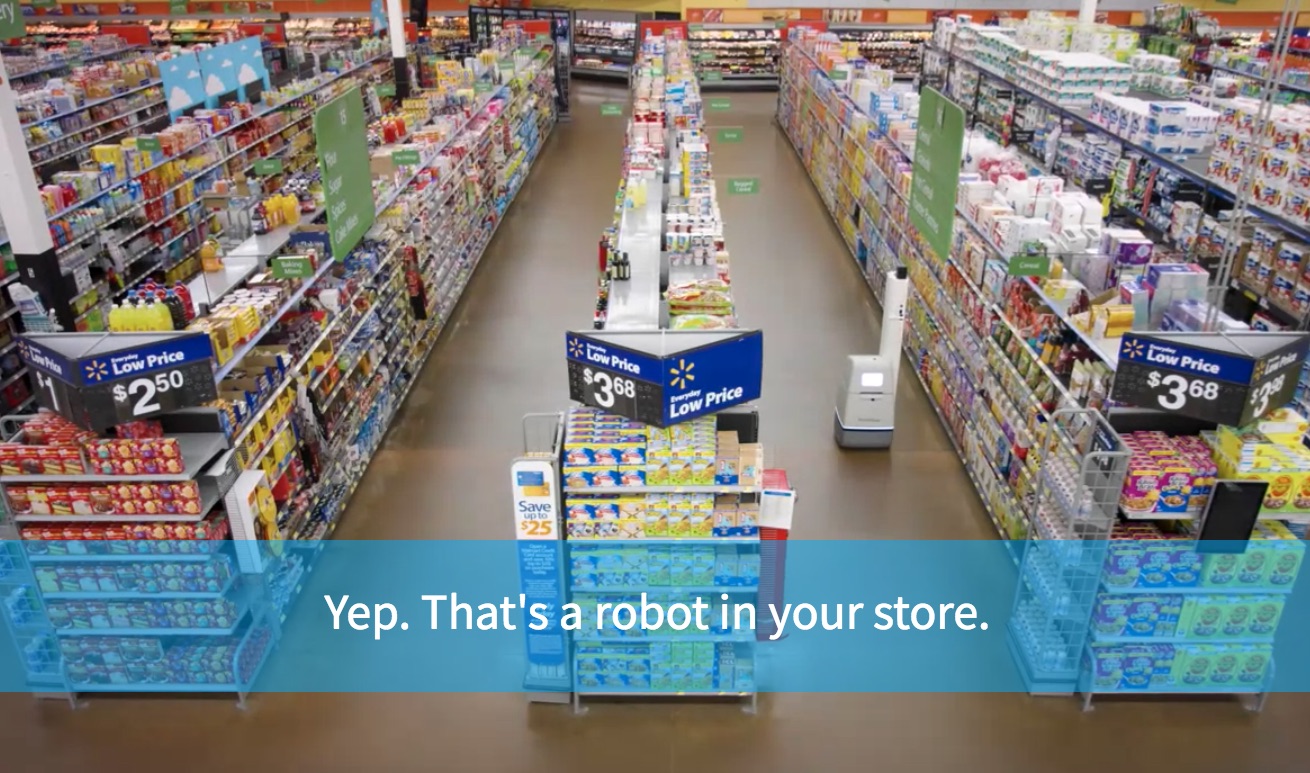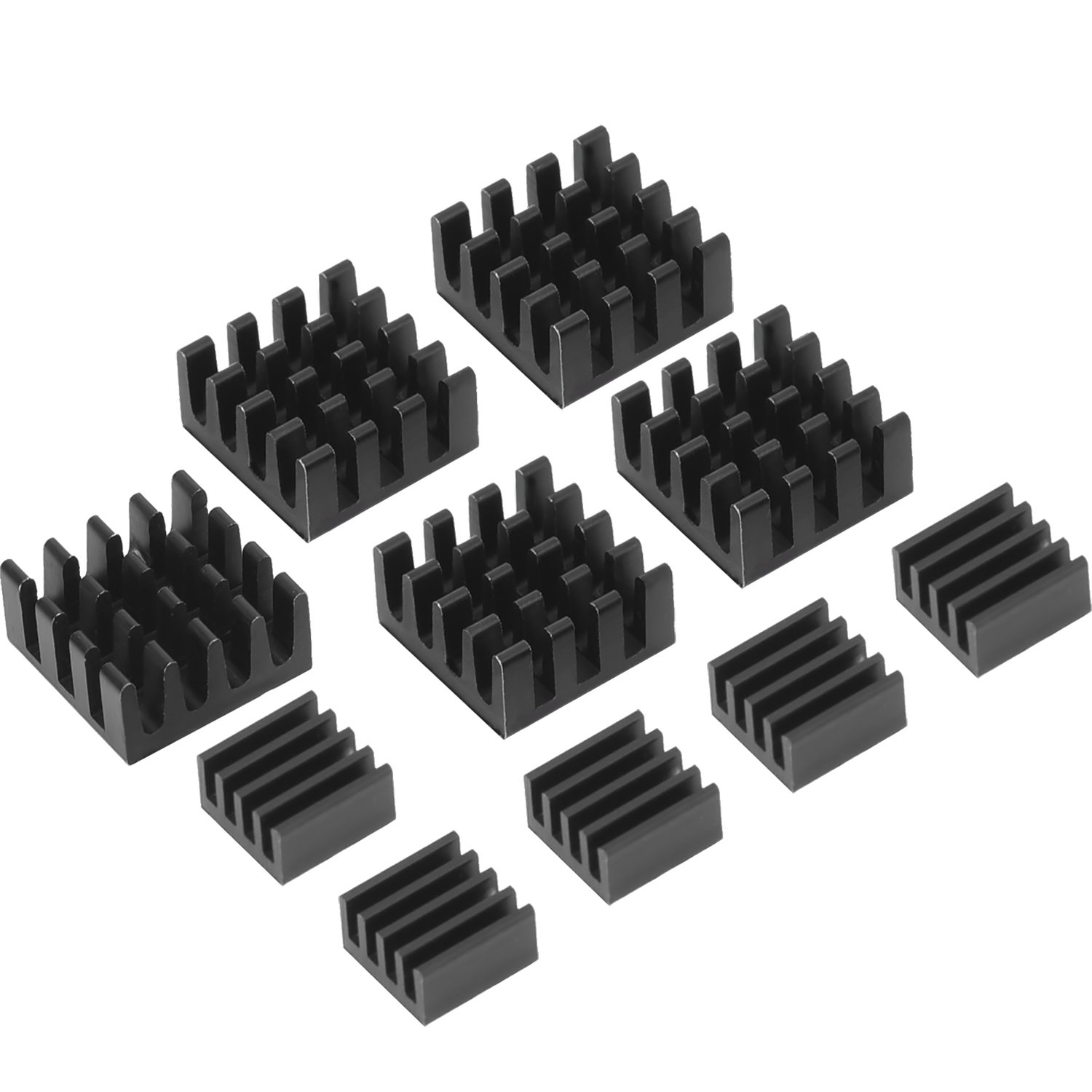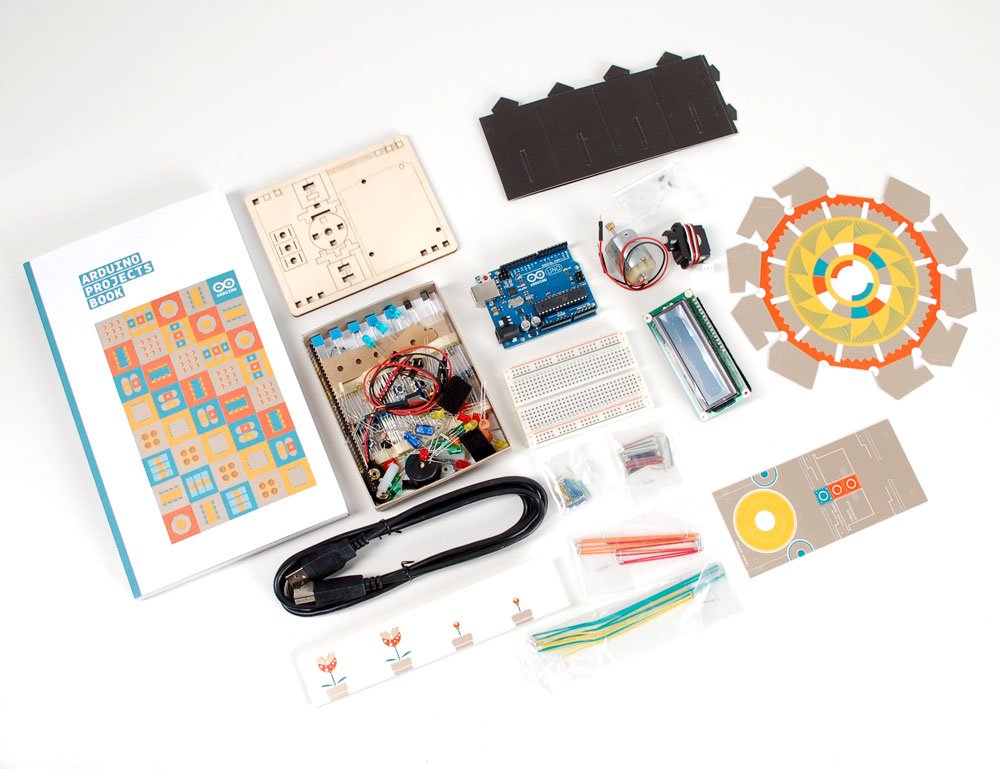; Date: Sun Sep 09 2018
Tags: Robots »»»» Artificial Intelligence »»»» Eliminating Jobs for Human »»»» Walmart »»»»
The biggest threat to American Jobs is not Mexicans but Robots. Case in point is a job description I found in a company saying they "specialize in providing any retail store with live robots that keep track of their inventory". The job in particular is for a software engineer to implement artificial intelligence driven image processing. The stated goal is to build a robot to scan shelves in retail stores, to check the inventory. Thing is, the inventory management job is one of many that humans have held for hundreds or thousands of years. Now "they" want to replace humans in this job with Robots.

There are plenty of factories in the USA, and around the world, where the work is primarily done by robots. Many warehouse facilities are full of robots moving things around, with humans only working on packing things into boxes, or unpacking things to put on shelves. Employers seem to want to eliminate pesky humans because they get sick, complain about working conditions, want time off, and always want a raise. Automation is not just coming to driving, it has been impacting factory workers for years, is starting to impact warehouse workers, and is moving towards human-facing roles.
I found a company offering a product similar to what's in the job description. Bosso Nova Robotics is supplying robots to Walmart for this exact purpose. According to an article by
Retail Dive, Walmart has seven projects underway to implement more technology around their stores, and half these projects involve automating jobs currently performed by humans. Obviously Walmart executives are aiming to eliminate those jobs.
According to Bosso Nova, their robot does :- "Basic stuff. Like scanning the shelves to help employees with restocking. It keeps track of where items are located, so you can find your favorite items at any time."
The Bosso Nova robot is meant to be deployed in the store during business hours. It therefore can sense objects and people around itself in the aisles, to detect and avoid people, shopping carts, objects on the floor, etc. It will wait for people to "pass" so it can continue on its appointed rounds of scanning the shelves.
Its focus is on scanning shelves, detecting empty sections on the shelves. Automated back-end systems send an alert to humans to restock or reorganize the shelves. The Retail Dive article discusses ensuring shelf tags are correct.
Robots are coming for our jobs.
Robots have taken jobs in factories, warehouses, and more. With this move, robots will be moving into more and more retail settings. As AI capabilities grow we can expect other kinds of jobs to be taken.
One would think a retail setting cannot be handled by a robot. As much effort as staffers put into organizing the shelves, humans tend to toss things around until the shelves are a hopeless jumble. Therefore robots might be unable to figure out what's where and what needs to be done.
It seems that Bosso Nova has had a breakthrough - enough to cause investors to pony up a significant amount of investment, and for Walmart to move quickly to adopt these robots.
That this shelf scanning task can be automated with a robot opens a door. Other tasks that supposedly require human understanding will be automated. The folks designing this robot surely have in mind a future robot with arms and greater computational understanding capability to reorganize or straighten items on the shelves, at which time Walmart might be able to begin decreasing its workforce.
When globalization started shifting jobs out of the USA to places with cheaper factory workers, we were told that "service industry" jobs could never be outsourced. It is true that shelf restocking and similar service industry jobs have to be performed in the store. What they did not tell us is that robots would would take those jobs.
More automation at Walmart
The shelf scanning robot from Bosso Nova is not the only automation effort underway at Walmart. Walmart stresses this is about improving efficiency in their stores, making them better places to shop. But the result is less work for humans to perform.
Returns Walmart customers seeking to return something can now initiate the process via the Walmart mobile app, get a barcode on their mobile device, take the item to the store, and simply drop it off. There would be no waiting for a customer service agent to handle the return, the customer simply drops it off. For the customer this seems nice, one less line to wait in. But doesn't it put Walmart at more risk of return fraud? And doesn't it reduce the human work involved in processing returns?
Unloading trucks Supposedly unloading trucks is "a task so disliked the company could hardly keep associates in the role". Back when I held this kind of job, unloading the truck was part of my duties and I didn't think of leaving the company over having to perform that task. Anyway, the Walmart project involves a robot named "Fast Unloader" that moves merchandise along a conveyor belt, sorting items, and getting them to carts.
Supposedly this project has not eliminated jobs. Instead Retail Dive says Walmart executives assert that "associates" whose work was unloading trucks have been reassigned to positions elsewhere in the store. Meaning that positions in the back room have been eliminated.
Employee Scheduling The data collected by the Bosso Nova robots generates task lists for human "associates". As we said above, it scans the shelves identifying holes, misplaced items, and incorrect shelf tags. The humans will be carrying mobile devices, to which task lists are sent based on what the robots found.











